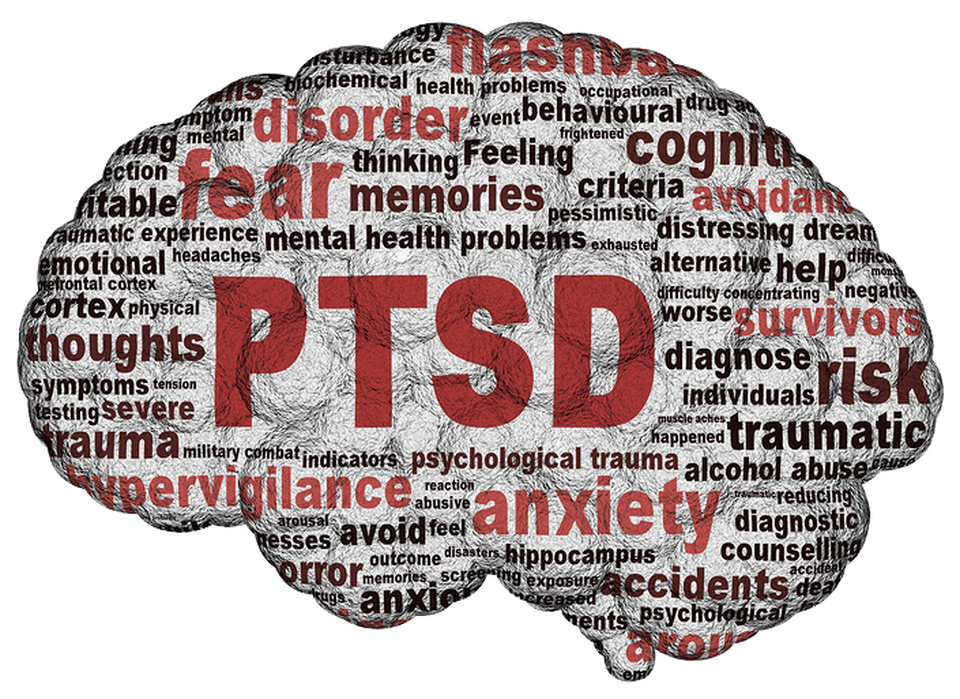
The hidden signs of unprocessed trauma: What to look for, how to understand them and stay away from denial at all cost. The many difficult challenges ahead!

Unprocessed trauma can cast a long shadow over one’s life, often manifesting in ways that are not immediately obvious. Recognizing these hidden signs, understanding their implications, and confronting them without falling into denial is crucial for healing and moving forward. This article explores the subtle indicators of unprocessed trauma, provides insights into comprehending these signs, and emphasizes the importance of avoiding denial despite the difficult challenges that lie ahead.
Question is: How to recognize these hidden signs?
Trauma can stem from various experiences, including abuse, accidents, natural disasters, or significant loss. While some trauma symptoms are immediate and apparent, others are more insidious and can remain unnoticed for years. Here are some examples:
Emotional Numbness:
What to Look For: An inability to feel emotions fully, experiencing a persistent sense of detachment or emptiness.
Understanding It: Emotional numbness serves as a protective mechanism, shielding the individual from the intense pain associated with trauma.
Hypervigilance:
What to Look For: Constantly feeling on edge, easily startled, or excessively aware of surroundings.
Understanding It: This heightened state of alertness is the body’s way of staying prepared for potential threats, a residue from the traumatic experience.
Avoidance Behaviors:
What to Look For: Avoiding people, places, or activities that remind one of the trauma; engaging in excessive work or hobbies to distract oneself.
Understanding It: Avoidance is a common coping strategy to prevent re-experiencing the trauma or associated distress.
Physical Symptoms:
What to Look For: Unexplained aches and pains, gastrointestinal issues, or chronic fatigue.
Understanding It: Trauma can manifest physically due to the mind-body connection. The stress and anxiety from unprocessed trauma can affect physical health.
Cognitive Difficulties:
What to Look For: Memory problems, difficulty concentrating, or frequent confusion.
Understanding It: Trauma can impair cognitive functions as the brain struggles to process and integrate traumatic memories.
Negative Self-Perception:
What to Look For: Persistent feelings of guilt, shame, or worthlessness.
Understanding It: Traumatic experiences can distort self-image and lead to internalized negative beliefs.
Interpersonal Issues:
What to Look For: Difficulty forming or maintaining relationships, trust issues, or frequent conflicts with others.
Understanding It: Trauma can affect one’s ability to connect with others and may lead to patterns of isolation or dysfunctional relationships.
Self-recognition is clearing the path to better future.
Recognizing the many signs of unprocessed trauma is the first step toward understanding its intricacies. Each symptom serves as a clue, pointing to underlying distress that has not been adequately addressed. Here’s how to deepen your understanding and be more self-aware of the signs when they surface:
Self-Reflection and Awareness:
Take time to reflect on your experiences and emotional responses. Journaling can be a helpful tool for identifying patterns and triggers.
Education and Knowledge:
Educate yourself about trauma and its effects. Understanding the biological and psychological impact of trauma can demystify your experiences and reduce feelings of isolation.
Professional Help:
Seek guidance from mental health professionals who specialize in trauma. Therapists can provide insights and strategies for coping with and processing trauma.
Support Networks:
Engage with support groups or trusted individuals who can offer empathy and understanding. Sharing your experiences with others who have faced similar challenges can be validating and healing.
Unfortunate circumstances of the many out there dealing with trauma.
Denial is a common but counterproductive response to trauma. It can offer temporary relief but ultimately hinders healing and recovery. Here’s how to confront denial:
Acknowledge Your Feelings:
Validate your emotions and experiences. Accepting that your feelings are legitimate is crucial for overcoming denial.
Challenge Avoidance:
Gradually expose yourself to avoided situations or memories in a controlled manner. This can help desensitize you to the trauma and reduce avoidance behaviors.
Seek Validation:
Talk to trusted friends, family, or therapists who can affirm your experiences and feelings. External validation can counteract self-doubt and denial.
Practice Mindfulness:
Engage in mindfulness practices to stay present and grounded. This can help you face your emotions without becoming overwhelmed.
Create a Safe Space:
Establish environments where you feel secure and supported. This can facilitate the processing of traumatic memories.
What should we expect in the near future?
Confronting and processing trauma is a challenging journey that requires resilience and support. Here are some challenges you may face and strategies to overcome them:
Emotional Overwhelm:
Challenge: Facing traumatic memories can trigger intense emotions.
Strategy: Practice grounding techniques and seek therapeutic support to manage emotional overwhelm.
Resistance to Change:
Challenge: The familiarity of old patterns can make change difficult.
Strategy: Set small, achievable goals and celebrate progress to build momentum.
Relapses and Setbacks:
Challenge: Periodic relapses into old symptoms or behaviors.
Strategy: View setbacks as part of the healing process and not as failures. Learn from them and continue moving forward.
Navigating Relationships:
Challenge: Trauma can strain relationships and trust.
Strategy: Communicate openly with loved ones and seek relationship counseling if needed.
Maintaining Motivation:
Challenge: The long healing journey can be exhausting.
Strategy: Find sources of inspiration and remind yourself of your progress and goals.
Always keep in mind that unprocessed trauma can profoundly impact every aspect of life, often in ways that are not immediately apparent. By recognizing the hidden signs, understanding their implications, and steadfastly confronting denial, you can begin the journey toward healing and fulfillment. Despite the many challenges ahead, with resilience, support, and the right strategies, it is possible to process trauma and reclaim your life. Remember, acknowledging and addressing trauma is a courageous and transformative step toward a healthier and more fulfilling future.

dr.dan
Related Posts
Misdiagnosed mysteries: Elevated ego vs narcissistic personality disorder.
The Covid-19 pandemic has unfortunately worsened the mental well-being of...
Discover yourself through various opportunities to attain professional success by managing episodes of anxiety through positive rituals and healthy long term habits.
In the journey toward your professional aspirations, it's important to...
The many faces of anxiety: Does the latter affect more than just the brain? Is it just mental or the physical gets affected? Let’s tackle each spectrum.
Anxiety is a complex condition that impacts more than just the brain, with...
Are you in the right MOOD to eat healthy FOOD? How can mental health affect your eating habits in the positive or negative way: Is the fast food industry subliminal messages affect our moods and how can we fight back? Psychological warfare explained!
Psychological warfare entails the strategic deployment of propaganda and...




